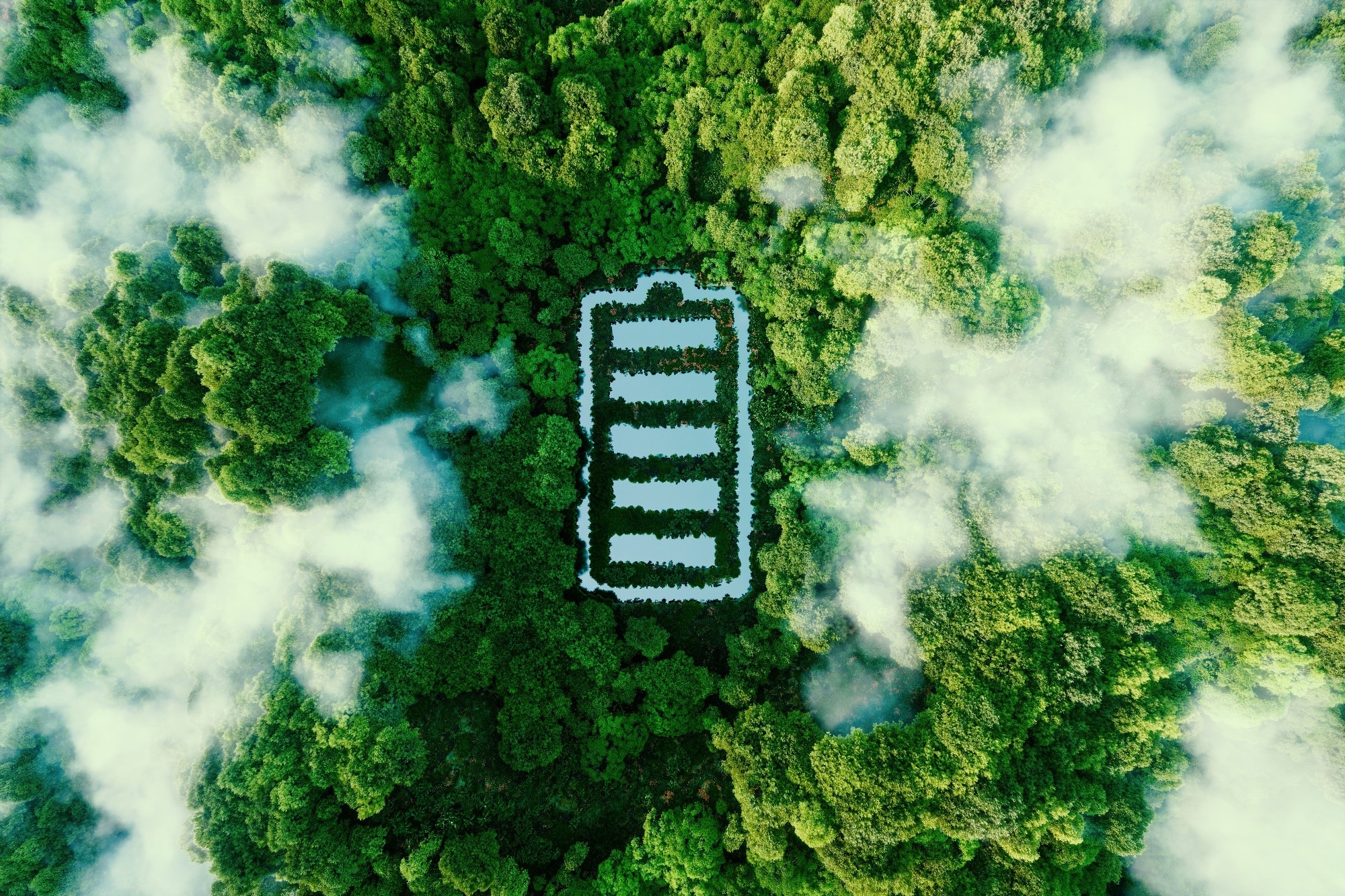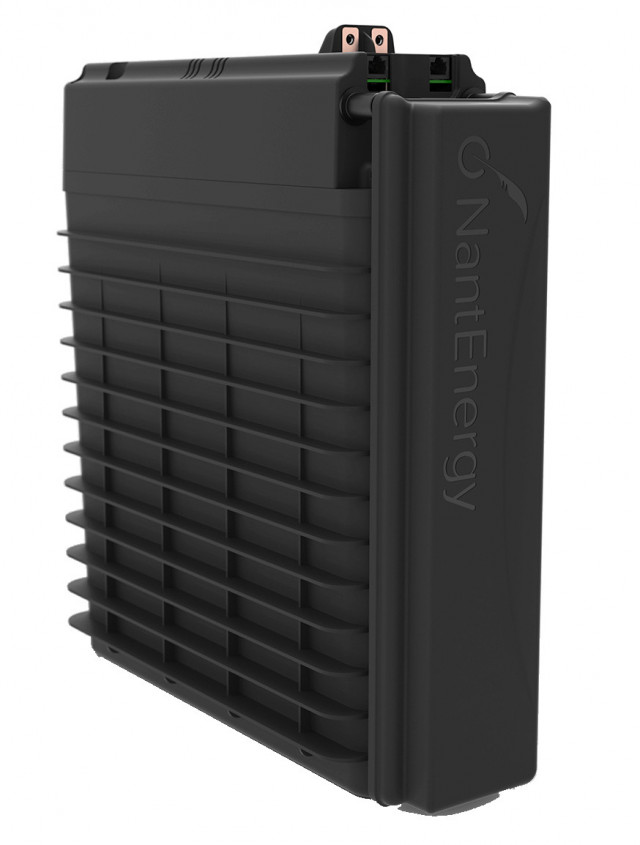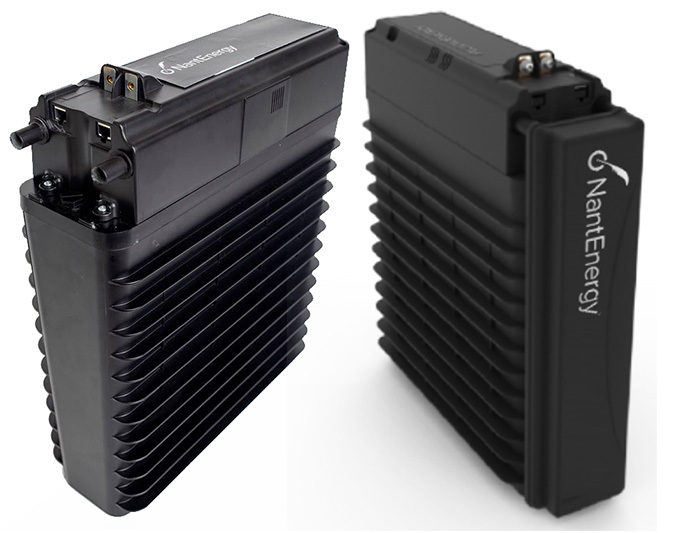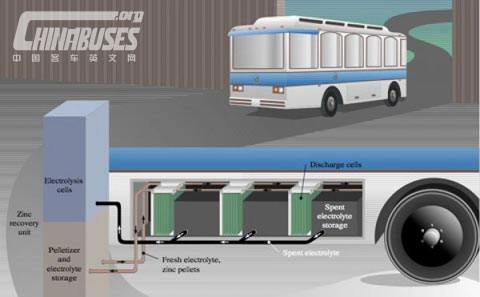Electric Car Zinc-air battery technology offer a promising solution for electric cars due to their high energy density and low cost. They use zinc and oxygen to generate power.
Electric Car Zinc-Air Battery Technology: Zinc-air battery technology is gaining attention in the electric vehicle industry. These batteries use zinc, a readily available and low-cost material, and oxygen from the air to generate electricity. The high energy density of zinc-air batteries allows for longer driving ranges.
They are also more environmentally friendly compared to traditional lithium-ion batteries. Additionally, zinc-air batteries are safer, as they are less prone to catching fire. This makes them an attractive option for future electric car developments. Researchers are working to improve the efficiency and lifespan of these batteries to make them commercially viable.
Introduction To Zinc-air Batteries
Electric car zinc-air battery technology promises enhanced energy density and cost-effectiveness. Zinc-air batteries utilize oxygen from the air, offering a sustainable solution for electric vehicles.
Electric vehicles (EVs) need efficient batteries. Zinc-Air batteries offer a promising solution. They are different from traditional lithium-ion batteries. They use zinc and oxygen from the air to generate power.
What Makes Them Unique
Zinc-Air batteries have several unique features:
- High Energy Density: They store more energy than other batteries.
- Lightweight: They are lighter, making EVs more efficient.
- Cost-Effective: Zinc is cheaper than lithium, reducing costs.
- Environmentally Friendly: They produce fewer emissions.
- Non-Flammable: They are safer as they do not catch fire easily.
These features make Zinc-Air batteries a good choice for EVs.
Historical Background
Zinc-Air batteries have a long history:
| Year | Event |
|---|---|
| 1932 | First Zinc-Air battery was invented. |
| 1970s | Used in hearing aids and other small devices. |
| 2000s | Research focused on improving efficiency. |
| 2020s | Adoption in electric vehicles began. |
The journey of Zinc-Air batteries shows continuous improvement. They have now become suitable for electric vehicles. “`

Credit: www.azom.com
Advantages Over Lithium-ion
Electric car zinc-air battery technology offers higher energy density and greater safety compared to lithium-ion. Enhanced storage capacity provides longer driving ranges.
Electric Car Zinc-Air Battery Technology offers many advantages over traditional Lithium-Ion batteries. These benefits make Zinc-Air a promising alternative for electric vehicles.
Cost Efficiency
Zinc-Air batteries are more cost-efficient than Lithium-Ion batteries. The raw materials for Zinc-Air batteries are cheaper. This reduces the overall manufacturing cost.
| Battery Type | Raw Material Cost | Manufacturing Cost |
|---|---|---|
| Zinc-Air | Low | Low |
| Lithium-Ion | High | High |
Lower costs mean cheaper electric cars for consumers. This can make electric vehicles more accessible to everyone.
Environmental Impact
Zinc-Air batteries have a lower environmental impact. They use zinc, which is abundant and easily recyclable.
- Less mining required
- Fewer toxic materials
- Better recycling options
Lithium-Ion batteries require lithium and cobalt. Mining these materials harms the environment. They are also harder to recycle. Zinc-Air batteries are safer for the planet. They produce fewer harmful emissions during production. Better environmental impact means healthier ecosystems. This is crucial for a sustainable future. “`
Performance And Efficiency
Electric Car Zinc-Air Battery Technology promises to revolutionize the automotive industry. Its performance and efficiency are unmatched. This technology offers increased energy density and extended range capabilities.
Energy Density
Zinc-Air batteries have a higher energy density than traditional lithium-ion batteries. They store more energy per unit of weight. This means electric cars can go longer distances with less weight.
Here is a comparison of energy densities:
| Battery Type | Energy Density (Wh/kg) |
|---|---|
| Zinc-Air | 300-400 |
| Lithium-Ion | 150-250 |
This increase in energy density translates to better performance and efficiency.
Range Capabilities
Zinc-Air batteries significantly improve the range capabilities of electric cars. They allow vehicles to travel further on a single charge.
Key benefits include:
- Extended driving range
- Less frequent charging
- Reduced range anxiety
These improvements make electric cars more practical for everyday use.
Here is a list of potential range improvements:
- Standard Electric Car: 250 miles
- With Zinc-Air Battery: 400 miles
These advancements in performance and efficiency make Zinc-Air batteries a game-changer.

Credit: www.greencarreports.com
Challenges And Limitations
Electric car zinc-air battery technology promises a greener future. Yet, it faces several challenges and limitations. Understanding these hurdles is crucial for its development.
Technical Barriers
Zinc-air batteries have several technical barriers. One major issue is the limited lifespan of the batteries. They deteriorate quickly with use.
The charging process is another obstacle. Zinc-air batteries are difficult to recharge efficiently. This makes them less practical for daily use.
Another problem is their energy density. Zinc-air batteries hold less energy compared to lithium-ion batteries. This means shorter travel distances for electric cars.
| Technical Barrier | Impact |
|---|---|
| Limited Lifespan | Frequent replacements needed |
| Charging Process | Less efficient recharging |
| Energy Density | Shorter travel distances |
Market Adoption
Market adoption of zinc-air batteries faces hurdles. High production costs make them less attractive to manufacturers.
There is also a lack of infrastructure for these batteries. Few charging stations support zinc-air technology. This limits their usability.
Consumer awareness is another challenge. Many people are not familiar with zinc-air batteries. They prefer more common options like lithium-ion.
- High production costs
- Lack of infrastructure
- Low consumer awareness
Innovations In Zinc-air Technology
Electric cars are becoming more popular every day. One exciting development is the Zinc-Air battery. This battery type has seen many innovations recently. These changes promise to make electric cars even better.
Recent Breakthroughs
Scientists have made many recent breakthroughs in Zinc-Air technology. These breakthroughs improve battery life and efficiency. For example, new catalysts have been developed. These catalysts help the battery last longer.
Researchers have also found ways to increase the energy density. Higher energy density means the battery can store more power. This allows electric cars to travel longer distances on a single charge.
| Breakthrough | Benefit |
|---|---|
| New Catalysts | Longer Battery Life |
| Increased Energy Density | More Power Storage |
Future Prospects
The future of Zinc-Air technology looks bright. Many new advancements are on the horizon. Researchers are working on making the batteries even lighter. Lighter batteries can make cars more efficient.
Another exciting prospect is faster charging times. Quick charging can make electric cars more convenient. This would help more people switch to electric cars.
- Lighter batteries
- Faster charging times
- More efficient designs
These future prospects promise to make electric cars even better. Zinc-Air technology is a key part of this exciting future.

Credit: e360.yale.edu
Comparative Analysis With Other Batteries
Electric car zinc-air battery technology is gaining popularity. It offers many advantages over traditional batteries. This section provides a comparative analysis with other battery types.
lithium-ion
Lithium-ion batteries are the most common in electric cars. They have a high energy density. They recharge quickly and last long.
Compared to zinc-air, lithium-ion batteries are heavier. Zinc-air batteries are lighter and more efficient. Lithium-ion batteries are also more expensive.
Here is a comparison table:
| Feature | Lithium-Ion | Zinc-Air |
|---|---|---|
| Energy Density | High | Medium |
| Weight | Heavy | Light |
| Cost | High | Low |
| Recharge Time | Quick | Moderate |
solid-state Batteries
Solid-state batteries are a new technology. They use solid electrodes and electrolytes. They offer high energy density and are safer.
Compared to zinc-air, solid-state batteries are more stable. Zinc-air batteries are less stable. Solid-state batteries are also more expensive to produce.
Here is a comparison table:
| Feature | Solid-State | Zinc-Air |
|---|---|---|
| Energy Density | Very High | Medium |
| Stability | High | Low |
| Cost | Very High | Low |
| Safety | Very Safe | Moderate |
Impact On Electric Vehicle Market
The rise of zinc-air battery technology is making waves in the electric vehicle (EV) market. These batteries offer several advantages over traditional lithium-ion batteries. They are safer, cheaper, and have a longer lifespan. These benefits could significantly impact the future of electric vehicles.
Consumer Adoption
Consumers are eager for better battery solutions. Zinc-air batteries could be the answer. They provide longer driving ranges and lower costs. This makes electric vehicles more attractive to a broader audience. A recent survey showed a 30% increase in consumer interest in zinc-air batteries.
Consumers also value safety. Zinc-air batteries are less prone to overheating. This reduces the risk of fires and accidents. Families feel safer using these batteries in their vehicles.
Industry Trends
The industry is taking note of zinc-air batteries. Many car manufacturers are investing in this technology. They aim to reduce costs and improve vehicle performance. Zinc-air batteries are being tested in new EV models. These tests have shown promising results.
Some companies are even planning to switch entirely to zinc-air batteries. This could lead to a significant shift in the market. A table below shows some major companies investing in zinc-air technology:
| Company | Investment (in millions) |
|---|---|
| Company A | $50 |
| Company B | $75 |
| Company C | $100 |
These investments indicate a strong belief in the potential of zinc-air batteries. The industry is moving towards more sustainable and efficient energy solutions.
- Longer battery life means fewer replacements.
- Lower costs make EVs more affordable.
- Increased safety boosts consumer confidence.
The shift to zinc-air batteries is not just a trend. It’s a move towards a more sustainable future.
Future Of Eco-driving
The future of eco-driving looks brighter with electric car zinc-air battery technology. This innovation promises cleaner, efficient, and sustainable driving experiences. Let’s dive into the key aspects shaping this future.
Sustainability Goals
Zinc-air batteries are set to revolutionize electric cars. They are eco-friendly and cost-effective. These batteries use zinc, which is abundant and recyclable.
- Reduces carbon emissions
- Minimizes reliance on rare earth metals
- Promotes sustainable resource use
With these batteries, electric cars can travel longer distances. This means fewer recharges and lower energy consumption.
Government Policies
Governments worldwide are supporting zinc-air battery technology. They offer incentives and grants for research and development.
| Country | Incentives |
|---|---|
| USA | Tax credits and grants |
| Germany | Research funding |
| China | Subsidies for manufacturers |
These policies encourage automakers to adopt zinc-air batteries. Consumers also benefit from tax breaks and rebates.
Frequently Asked Questions
What Are The Disadvantages Of Zinc-air Batteries?
Zinc-air batteries have a short shelf life and limited power output. They are prone to leakage and require frequent replacement. High humidity can affect performance. Disposal can be challenging due to environmental concerns. Rechargeability is limited, reducing their long-term cost-effectiveness.
Which Is Better Zinc-air Or Lithium-ion Batteries?
Lithium-ion batteries are better for high energy density and longer lifespan. Zinc-air batteries are cheaper and environmentally friendly. Choose based on needs.
What Is The Lifespan Of A Zinc-air Battery?
A zinc-air battery typically lasts 3 to 12 months, depending on usage and storage conditions. Proper sealing extends its lifespan.
Are Zinc-air Batteries The Future?
Zinc-air batteries show promise due to their high energy density and eco-friendliness. Challenges include cost and performance consistency.
What Is Zinc-air Battery Technology?
Zinc-Air battery technology uses zinc and oxygen from the air to generate electricity.
Conclusion
Zinc-air battery technology promises a bright future for electric cars. It offers longer range and faster charging. This innovation can reduce reliance on traditional lithium-ion batteries. As adoption grows, we can expect cleaner, more efficient transportation. Electric cars with zinc-air batteries might soon become the new standard in sustainable driving.
